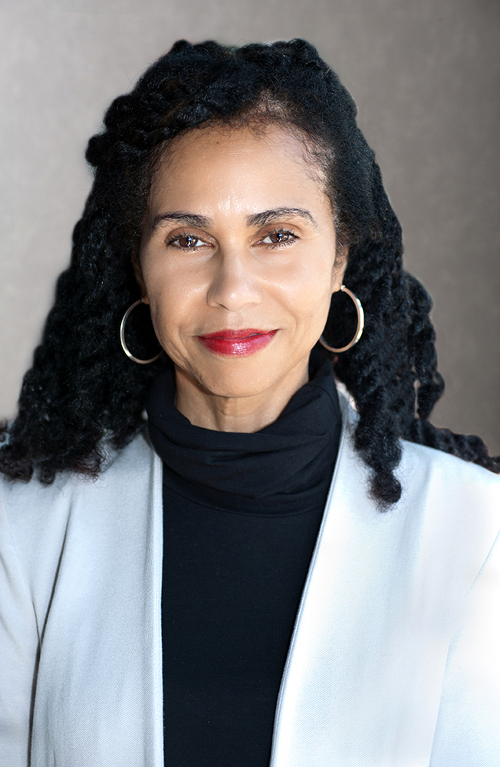
With the help of a $50,000 grant from the Kalamazoo Community Foundation, Dr. Cheryl Dickson is launching an initiative at WMed to address health disparities that exist in the transgender community through educational intervention for medical students, residents and community practitioners.
The work by Dr. Dickson, the medical school’s associate dean for Health Equity and Community Affairs, has been underway since September. She said the one-year grant from the foundation will fund the development of a curriculum for undergraduate and graduate medical education that will provide training on treating transgender patients and embed awareness about transgender healthcare needs and disparities.
“There are higher levels of disparities when we look at the LGBT population, and the transgender population has the greatest disparities,” Dr. Dickson said.
Dr. Dickson said the curriculum, once in place, will include a simulation component that will include standardized patients from the LGBT community and focus on the primary healthcare education needs for transgender patients to better inform practicing physicians and future physicians about caring for transgender people. In turn, Dr. Dickson said the work will lead to the medical school as an institution becoming more culturally competent and inclusive in the training of students, residents in primary care specialties and faculty in LGBT healthcare needs.
The training, Dr. Dickson said, is needed as the LGBT community, in particular transgender patients, have higher healthcare disparities related to access to care and inappropriate care for primary healthcare needs.
Dr. Dickson credited Kevin Cates, a fourth-year student at WMed, as being the leader on presenting the idea to the Kalamazoo Community Foundation for the initiative to develop the new curriculum. She said she is working on the project with other faculty at the medical school, including Kristine Gibson, assistant dean for Clinical Applications, and Kristi VanDerKolk, assistant professor in the Department of Family and Community Medicine. Other members of the team working on the project include Connie Worline, clinical director of Simulation, and Amanda Hojnacki, coordinator of the Standardized Patient Program, as well as second-year medical students Theron O’Halloran and Joshua Vandeburgh.
“We’re looking at what other schools are doing,” Dr. Dickson said. “We are looking at what we need to do to teach the curriculum in clerkships … We’ve actually done quite a few things in terms of looking at literature and what other schools are doing. I hope to develop at least four standardized patient cases that will be used for training for residents and medical students in various parts of the curriculum.”
In addition to medical students and residents, Dr. Dickson said there will also be a transgender education awareness and continuing medical education piece for practicing physicians in the Kalamazoo community that will include programs such as grand rounds and quality improvement modules that will focus on transgender health concerns.
“The other part of this is to help bring more awareness and comfort to community practitioners to increase accessibility to patient care for the transgender community,” Dr. Dickson said.
The grant from the Kalamazoo Community Foundation is just one of a few that Dr. Dickson was recently awarded to help address disparities that exist in the community.
A $5,000 grant she received from Kalamazoo Public Schools in October will buoy the medical school’s Early Introduction to Health Careers I program for fourth-grade students at Northeastern Elementary School. EIH I is one of the medical school’s pipeline programs, which are designed to champion the biomedical science and healthcare career aspirations of underrepresented and disadvantaged youth in Southwest Michigan.
Additionally, Dr. Dickson also received in October a $25,000 grant from the United Way of the Battle Creek and Kalamazoo Region that will help fund the EIH II program at WMed, which is for high school sophomores in the Kalamazoo community.
“Diversity is important in medicine and the more diversity you have, the more likely it is that a provider will give care that is more culturally competent,” Dr. Dickson said. “This is an upstream approach to actually creating health equity and impacting disparities.”
